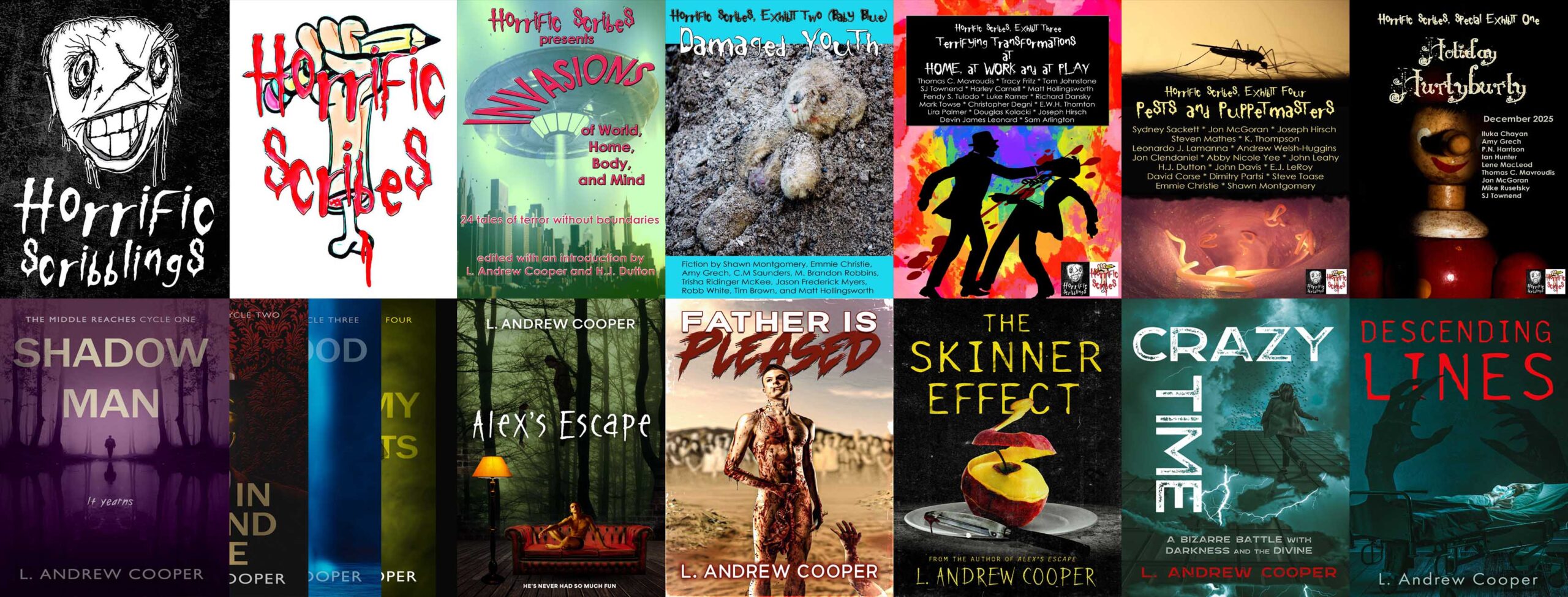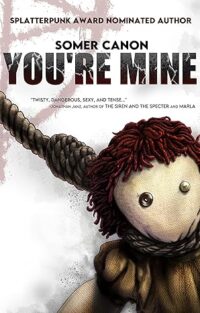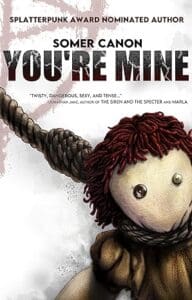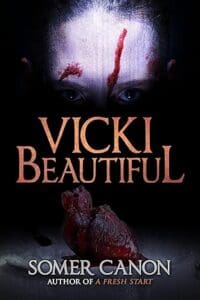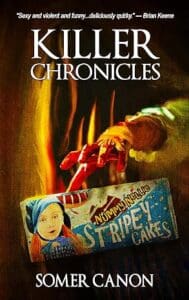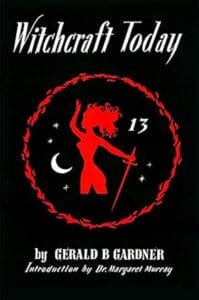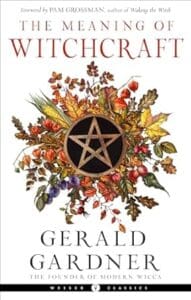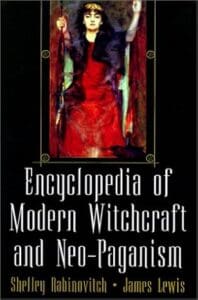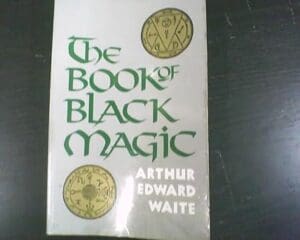Horror writer Somer Canon calls her novel You’re Mine a slow burn, but the ideas and insights on display in our interview point toward why I found it to be a page-turner…
You’re Mine
Insecure misfit Ioni Davis never thinks she’ll find love in her sleepy West Virginia hometown. Then the tall, fascinating stranger Raber Belliveau transfers to her school.
Their attraction is instant and red-hot. And a shared fascination with witchcraft bonds the young lovers even closer.
But while Ioni is responsibly studying her newfound religion of Wicca, Raber has chosen an altogether… different path.
Soon, Raber’s behavior becomes manipulative. Even abusive. And their love story for the ages is turning into a macabre farce. All Ioni wants to do is get out.
But Raber has discovered a dreadful way to control their relationship. A ritual which hasn’t been attempted in over a century. A spell to unleash a bloodthirsty terror which can never be satisfied.
Ioni finds herself trapped in a struggle for her life and even her free will against a once-trusted lover who has assured her…
YOU’RE MINE
The Interview
1. You’re Whose? I: Audience. You’re Mine focuses on the relationship between teenagers Ioni and Raber, delving deeply into their emotions, and in doing so, it might fit with a YA readership. Did you think about YA readers as you wrote? I can think of at least two major problems with a YA classification. First, the sex. You write with delicate language, but sex scenes are nevertheless explicit and “red-hot.” Exactly how sexy do you aim to be? And why the delicacy? Second, the violence. Abuse and eventually gore also become explicit. The cover mentions your Splatterpunk Award nomination, not something one generally advertises to the YA market. How extreme is You’re Mine? Bottom line: who’s your audience for this book?
SC: My husband is a big fan of YA fiction, so I realize that it’s a very popular genre, but just because a story features characters of a certain age, that doesn’t necessarily mean that the tale is intended for that age group. I am a horror writer, and horror has a very large selection of coming-of-age tales. These are tales that typically, in horror, feature protagonists that are not yet adults, but the stories are meant for an adult audience. The difference between a YA tale and a coming-of-age tale, especially in the horror genre, is that these tales are written with a very deliberate backwards glance. The reader is meant to feel nostalgic for their younger days.
There is a lot of sex in this book because the central story is a love story. While love and sex can certainly happen independent of each other, they do tend to share the same spaces quite often. As for the “delicacy” in the language that I use, the answer to that is actually a technical one. I’ve been a published writer for a decade, and I’ve worked with many editors. Not all of my stories heavily feature sex, like Vicki Beautiful, but sex makes its appearances in my work at least half of the time.
During my career, I’ve learned from various editors that there’s a fine line, guided by the language used, between speculative fiction that features sexual content and pornography. Sometimes you can get away with vague language in a sex scene, and I’ve certainly used that technique, but I wanted the sex scenes in You’re Mine to reflect that exciting time in life when sexuality is still being discovered, when it’s still new and experimental. When it’s the most exciting. So, yes, I wanted the sex scenes in this book to be impactful to the reader, but I had to maintain my genre by choosing my words carefully.
My Splatterpunk Nomination was for a book titled Killer Chronicles. That book is actually a novella, a much shorter work than You’re Mine, and there are situations in that book that are strange, weird, and yes, very violent. Killer Chronicles has one scene that is surprisingly brutal and gory, and I think that is why it got the Splattterpunk Award nomination. That one scene is why You’re Mine isn’t quite as extreme when it comes to violence and horror, but it is still very much a horror novel, intended solely for horror fans.
2. Love, Possession, Objectification. As your book’s description (above) indicates, Raber utters the possessive words of the book’s title, but at one point Ioni also thinks of him as hers. Is possessive love necessarily problematic? Why or why not? Does feeling like a lover is “yours” necessarily objectify your lover? Why or why not? Without giving too much away, what turns Ioni and Raber’s love toxic?
SC: Being in love with a person and declaring them “yours” isn’t in and of itself problematic. There are certain permissions granted to a romantic partner, and one must allow that sometimes, certain declarations are made lightly. The problems come when those same declarations are made with a seriousness that takes the other party’s consent out of the equation. Ioni says that Raber is hers at a time when, well, he was. He consented to that, and she consented to being his. It’s not total possession, but a declaration of a consensual bonding. But when a breakup happens, and one party still insists that the other is still “theirs”, that’s a problem because the consent has ostensibly been revoked. A choice to be separate and break that bond has been made, and that’s when objectification happens. A de-humanization occurs when one party has no regard for the feelings and autonomy of the other.
As for Raber and Ioni’s relationship specifically, I think that it’s seeded pretty early on in their relationship that there are problems. As adults with experience in such matters, we can see certain behaviors as the big red flags that they are, but Ioni is still so young, and she’s inexperienced in such matters. Some lessons are learned the hard way, unfortunately. That’s why we see them so clearly as experienced adults.
3. Teen Distortion. You’re Mine refers repeatedly to Shakespeare’s Romeo and Juliet, a play that, when I look at it as an adult, seems very much to be about teenagers too whacked out on hormones and naivete to make reasonable choices. Romeo and Juliet’s melodramatic extremes are distorted by their youth. To what extent is the same true for Ioni and Raber? Does the book have a perspective behind theirs that holds the follies of their youth up for examination, and if it does, where does that perspective appear most clearly? Ioni, like a lot of young people of her time, is self-conscious about her age and stage of life, making “meta” comments about being young and the possibilities and limitations involved. What does her “meta” attitude say about her? Would her story even be possible if she and other characters were older? Why or why not?
SC: I think, because the intended audience of this book is adults, we can be forgiving of Ioni’s naïve decisions. This story most certainly could happen to older characters, but I truly believe that the readers would be less forgiving of some of Ioni’s decisions. Her youth and inexperience evoke pity, even when we find her frustrating. As adults, we can remember how, at Raber and Ioni’s ages, we thought all of our feelings were the biggest feelings ever, and that was because at the time, it was our first time experiencing a lot of them. And that new bigness made us, honestly, very stupid and impulsive. I think something that I wanted to impart about Ioni’s personality is that she’s very self-conscious, but she’s also introspective. She stops and thinks. Of course, that doesn’t save her from a lot of things that inexperience sends her walking right into, but it does keep her from being outright reckless. Ioni’s introspection is what brings about those meta moments, where she’s very self-referential and worried about how she’s perceived. Being a teenager is hard, especially in regard to identity. Adult readers can feel Ioni’s struggle there because we lived that and may still be living it. To reiterate, this story could happen to older characters, but it would be much harder to relate to those characters, much harder to sympathize with them, and much harder to excuse certain decisions. Youth and inexperience makes some of this story believable.
4. Party Like It’s… 2002. Published in 2022, You’re Mine is set in 2002. Why? What situations and cultural conditions are available for the story in a 2002 setting that aren’t in the nearer present? One salient detail early in the story is the absence of cellphones—getting to payphones is important—and then later in the story, the introduction of a cellphone as “new tech” becomes important. Why the emphasis on this particular tech for this story? What does the introduction of cellphones do for your characters in 2002 West Virginia?
SC: With all of the 80s nostalgia raging in popular culture, I honestly thought I’d take a whack at some Millennium nostalgia. I graduated high school in 2001, so this is MY time. I remember having to navigate certain activities around getting to a payphone. I remember when average folk, not just the wealthy, could start getting cell phones, and how it immediately changed how we interacted, not only with others, but with the outside world. I have a very distinct memory from my childhood of driving back country roads to visit family, and my mom’s car broke down. How my brother and I waited in the car while my mom hiked to the nearest house to ask if she could use their phone. Cell phones changed that. Being able to send a quick text as opposed to a phone call changed so much. Communications, even important conversations, happening through text changed how we talk to each other, the words we choose when typing them out as opposed to speaking them.
I’d also like to point out that the place, small town West Virginia, is important in all of this. When the internet became widely available, when we could be connected to anywhere at any time, the world got a whole lot smaller because it was much more accessible. That was something that that area (I’m originally from small town WV) hadn’t had before. The communities tended to be insular both by choice and because of geography. The youth of that time embraced the technology because we knew that there was so much more out there, and it shaped how a lot of us viewed ourselves, our hometowns, and the world at large.
5. Outsiders and Families of Choice. Ioni and her friends identify themselves as “weirdos” and outsiders, mostly dressing as goths. Why are goth looks and (at least temporary) goth identities right for these characters? Why is their outsider status important? Ioni thinks of her peer group from school as family, and later, she also thinks of her Wiccan group as family. What is You’re Mine saying about the idea of family, particularly about outsiders and families of choice?
SC: In the book, we meet Ioni’s family. While it seems that her family situation isn’t a toxic one, there seems to be a lack of closeness and affection with her family. Her parents both work, her siblings are kind of self-involved, and that ends up leaving Ioni as a lonely person with a need for close bonds. Because her friends all have their own difficult situations, some much more than Ioni’s, they too crave a closeness. It’s not exactly a trauma bond, but it’s people who see their own needs reflected back to them in their chosen friend group.
Goths in my small town in the early 2000s were rare but not unheard of. My conservative mother would have had kittens if I’d taken up with that aesthetic, so I chose instead to be the invisible girl in school. But my friends were the weirdos, and I always admired their laissez-faire attitudes about how others perceived them. Really, the goth aspect of this book is my love letter to the weirdos. It’s nothing deeper than that; it’s just the romantic whims of an author who loved the moxie of the people who just decided not to care what others thought of them. Ironic, I guess, considering my main character in this book is actually a very self-conscious girl who maybe doesn’t care what others think of her, but she’s not quite comfortable in her own skin yet.
6. Magic and Ritual I: Right-Hand Path. As the novel’s description suggests, Wicca is very important in the story, which includes detailed descriptions of Wiccan beliefs and rituals. What background and/or research did you bring to your writing about Wicca? Why did you choose to make Wicca so prominent? What do you think people misunderstand most frequently about Wicca and the “right-hand path?” Why does Ioni “fit” with the study of this religion?
SC: I have personal connections to Wicca, but I really wanted to make sure that I wasn’t disrespecting those beliefs when writing this book. Witches are so often one-dimensional characters, and I wanted to provide a story that offered that Wiccans, witches, and the other connected beliefs were perceived in the multitudes that they inhabit. There’s no one way to be any of these things. I did a lot of reading, and I read Witchcraft Today and The Meaning of Witchcraft by Gerald Gardner, as well as a lot of works written about some of his other books. I also read The Encyclopedia of Modern Witchcraft and Neo-Paganism by Shelly Rabinovitch and James Lewis, which was extremely informative. I made Wicca so prominent in this book because I wanted it viewed as the lifestyle that it is to so many, and I wanted it to be appealing to my outsider cast of characters, while making sure that it’s not viewed as merely aesthetics.
I’m not entirely sure that the average person knows enough about Wicca to understand enough about it to have misunderstandings. But that’s why I chose to be detailed in my own descriptions. The right-hand path is one of service to a higher power. It’s of giving and living a life of helpful selflessness. Of course, Wicca is a big belief system, and not all sects believe the exact same things. But I think this was a good path for Ioni because she is a giving spirit. She enjoys being charitable and giving to those she loves, and the idea of living a life that subscribes to ideals that are unselfish at their core would very much appeal to her. Living in a way that disregards others would never appeal to Ioni.
7. Magic and Ritual II: Left-Hand Path. You also introduce “black” magic alongside Wicca’s “white” magic, the left-hand path opposed to Wicca’s right-hand path. While you offer fewer details, your book is still well-informed: what were your sources for the beliefs and practices associated with those whom the Wiccans oppose? In your story black magic seems to be associated with a strong male influence while white magic is associated with a strong female influence. Are the two approaches gendered? Black and white also seem to be associated, respectively, with an active, aggressive will and a more passive form of communion. Is that correct? Why or why not? How do you personally feel about one character’s claim that “There is no white or black magic?”
SC: The same books were used for both the right-hand path and the left-hand path. Arthur Edward Waite put together a collection of what he considered to be black magic rituals and spells titled The Book of Black Magic, but it’s not really digestible to your average reader. There was certainly more fiction writing done by me for the left-hand path side of the coin. Wiccans and pagans tend to be non-judgmental by nature, so they don’t condemn the left-hand path as heavily as the coven in You’re Mine does, but there is a sense of warning evident in the writings of it that I read. The left-hand path is the self-serving path. No higher power is put above one’s own self, but more to the point of the book, no other person is put above one’s own self. It’s pure, unadulterated selfishness that is helped along by magic.
I don’t think the two paths are gendered. The coven that practices the right-hand path has male practitioners and has a male high priest working with them. But you’re absolutely correct that the two paths are denoted by two very different temperaments. The right-hand path is more passive, but it’s also more relaxed because there is trust put into a higher power. You don’t need to be so keyed up when you have faith in something bigger than yourself. The left-hand-path, which tends to attract people who harbor beliefs that are antithetical to societal norms, tends to be more aggressive because one must do one’s own dirty work rather than pray to and have faith in a higher power.
The assertion that there is no white or black magic is one that is used by some real-life magical practitioners. There’s a belief that the magic knows nothing of good or evil, it just is. The intent is in the will of the practitioner. The witch is white or black; the magic is an ephemeral, shifting thing that molds to the will of the practitioner.
8. You’re Whose? II: Genre. When the “bloodthirsty terror” mentioned in the book’s description (above) comes into play, Part One moves on to Part Two, and the story changes significantly, arguably shifting in genre from a coming-of-age, teen relationship thriller to all-out horror. The story transformation reminds me of Hitchcock’s Psycho (1960) and Miike’s Audition (1999, one of my favorite films of all time). Particularly in the first part, how conscious were you of genre conventions for coming-of-age stories and relationship thrillers? Do you agree that something on the level of a genre shift occurs when the second part begins? Why or why not? Do you expect readers to enjoy both parts equally? If so, how do you pull that off? If not, why do you distribute your reading pleasures the way you do?
SC: I don’t think of the break from the first part into the second part as being a genre shift, although I don’t disagree with someone who sees it that way. I was very conscious that I was doing a big fifteen-degree jerk with the second part of the book, and I agonized over it. I toyed with the idea of flashbacks throughout, but decided that I wanted that jarring, abrupt change of tone. There’s something specifically horror about that sudden shift that I’ve grown to love. Horror is very familiar with what we call the “slow burn horror.” Not every horror tale begins with action. Sometimes we take the time to build something so that we can then later utterly destroy it. That’s what I did. I spent the first half of the book building something, and then I destroyed it in the second half. The slow burn isn’t for everyone. Some readers find it frustrating, but no one thing is for everybody. I can’t write with the aim of pleasing everybody because I’d freeze with anxiety and never finish a thing. I decided that I wanted to unseat my readers, surprise them. And that’s for no other reason than that’s what I’d like to read. I like the high-octane, action-packed horror. I like horror that starts creeping you out from the first sentence. But, because I love character-based stories the most, I also don’t mind a slow burn. I’ll be patient for a story that takes a little longer to get started if I’m getting to know some great characters. Now, I won’t flatter myself by declaring the characters in You’re Mine great, but I think they’re pretty darn close.
9. Empathy, Psychopathy, and Caution. Empathy, whether it succeeds or fails, is often a central issue in You’re Mine. As the description above reveals, Raber becomes manipulative and abusive—to what extent is lack of empathy a cause, perhaps even a necessary cause, of his behavior? Ioni seems to have deeper feelings for fellow humans, but she doesn’t empathize deeply enough to anticipate Raber’s behaviors—is she guilty of a lack of empathy? Why or why not? Are the behaviors of Raber and Andrew, his friend who influences him to follow a “dreadful” path, psychopathic, or reflective of an inability to empathize? Near the end of the book, a character reflects that what has occurred could be understood as a cautionary tale. What might it caution against? Failures of empathy? The predations of psychopaths? Something else entirely? Nothing at all?
SC: Raber’s lack of empathy is absolutely the root cause of his behavior. If he had the capacity to care about how his actions affected others, he wouldn’t go as far as he does. His lack of empathy is what, I think, draws him to the left-hand path. Everything has to be about him, what he wants, how he wants it.
I don’t think that Ioni is showing a lack of empathy in not being able to anticipate what is, essentially, sociopathic behavior from someone that she loves. She’s young and inexperienced, and she wants to see the good in people. Even experienced adults still get bamboozled by manipulative people. Nobody has all the software to be able to anticipate someone getting close to you and then hurting you. If anything, it’s her empathy that Raber uses against her, that ends up hurting her the most.
I think Andrew is more psychopathic than Raber. Andrew isn’t as scheming as Raber; he’s more a man of action. But both of them absolutely have an inability to empathize. They sincerely do not care about other people.
The character who muses that Raber and Ioni’s is a tale of caution ends up seeing the situation as “just sad,” but I think that the caution is meant to be taken in the abandon that Raber and Ioni took in getting involved with each other. Nobody wants to hear that you should be cautious in love, but that ends up being what that particular character saw the need for in this story. But at the end of the day, it may just be the musings of someone who has seen some awful stuff and may just be trying to make sense of a situation that really makes no sense at all.
10. Access! How can readers learn more about you and your works (please provide any links you want to share)?
SomerCanon.com is a good place to find my works and appearances. I also talk about horror books and movies on my YouTube Channel here: https://www.youtube.com/channel/UCNXla3f6lLmvUULmWrT-2dg
About the Author
Somer Canon is the Imadjinn Award winning and Splatterpunk Award nominated author of works such as Killer Chronicles, The Hag Witch of Tripp Creek, and You’re Mine. When she’s not wreaking havoc in her minivan, she’s avoiding her neighbors and consuming all things horror. She has two sons and more cats than her husband agreed to have.
